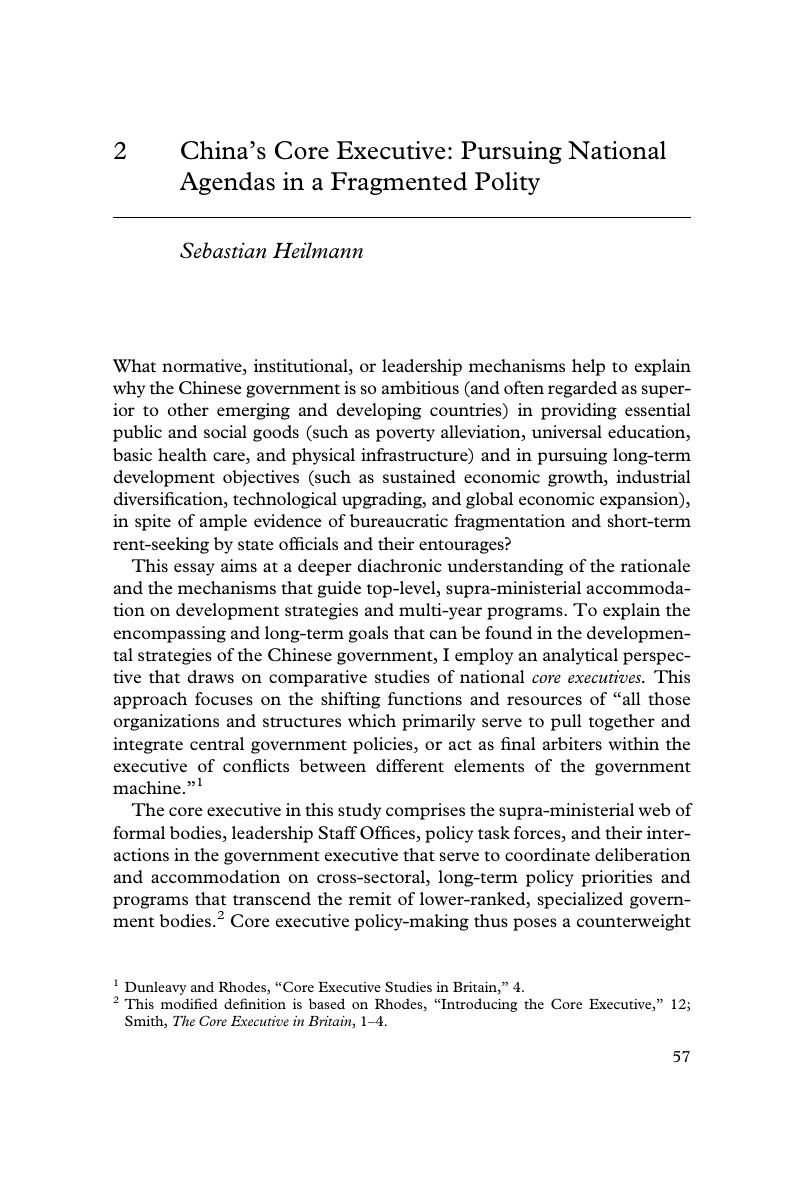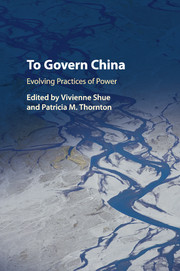Book contents
- To Govern China
- To Govern China
- Copyright page
- Dedication
- Contents
- Contributors
- Introduction: Beyond Implicit Political Dichotomies and Linear Models of Change in China
- I Leadership Practices
- Manipulating Symbols and Sentiments
- Steering
- 2 China’s Core Executive: Pursuing National Agendas in a Fragmented Polity
- Envisioning
- II People’s Government
- III Expedients of the Local State: Bargains and Deals
- IV Governance of the Individual and Techniques of the Self
- Index
- References
2 - China’s Core Executive: Pursuing National Agendas in a Fragmented Polity
from Steering
Published online by Cambridge University Press: 25 October 2017
- To Govern China
- To Govern China
- Copyright page
- Dedication
- Contents
- Contributors
- Introduction: Beyond Implicit Political Dichotomies and Linear Models of Change in China
- I Leadership Practices
- Manipulating Symbols and Sentiments
- Steering
- 2 China’s Core Executive: Pursuing National Agendas in a Fragmented Polity
- Envisioning
- II People’s Government
- III Expedients of the Local State: Bargains and Deals
- IV Governance of the Individual and Techniques of the Self
- Index
- References
Summary

- Type
- Chapter
- Information
- To Govern ChinaEvolving Practices of Power, pp. 57 - 81Publisher: Cambridge University PressPrint publication year: 2017
References
- 3
- Cited by



